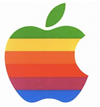 I’m not a financial analyst, so I hesitate to do anything that smacks of analyzing finances. But Apple just released its financial results for its first fiscal quarter and hosted a conference call to discuss them, and the news seems mostly good, especially given the dire condition of the economy. The company reported record quarterly revenue and profit, and also revealed the following:
I’m not a financial analyst, so I hesitate to do anything that smacks of analyzing finances. But Apple just released its financial results for its first fiscal quarter and hosted a conference call to discuss them, and the news seems mostly good, especially given the dire condition of the economy. The company reported record quarterly revenue and profit, and also revealed the following:
Macs: 2.5 million Macs were sold in the quarter, representing 9 percent growth. 71% of them were notebooks; desktop sales, not surprisingly, are down. Macs sold Apple pointed out that an IDC study says that the overall PC market shrunk during the quartert.
iPods: The company sold 22.7 million iPods, representing 3 percent growth. The players have 70 percent market share. iPod revenue, however, was down.
iPhones: 4.4 million handsets were sold in the quarter. 13.7 million were sold in calendar 2008–above the company’s once-daunting 10 million goal.
Apple Stores: The company’s 251 stores in 10 countries sold $1.7 billion of stuff in the quarter, including 515,o000 Macs–“almost half to new owners.” But per-store sales were down because of the touch economy and discounts and deals offered by third-party sellers of Apple products.
A few tidbits based on questions asked by financial analysts who were in on the call–the quotes below are from Apple COO Tim Cook and CFO Peter Oppenheimer:
How’s Steve Jobs? How will Apple fare without him? “Steve is the CEO of Apple, and plans to remain involved in major strategic decisions, and Tim will be responsible for day-to-day operations.” There’s an “extraordinary breadth and tenure of senior Apple executives,” and they lead a team of “wicked-smart” employees. “The values of our company are extremely well-entrenched…We’re on the earth to make good products, and that’s not changing…We believe in saying no to thousands of products…I strongly believe that Apple is doing the best work in its history.”
Will Apple continue to open new Apple Stores given the economic climate? Yes. 25 new stores in FY09, half outside the U.S.
Would Apple sell more iPhones if they cost less? “$199 with contract is compelling…we see nothing else close to it…we’re years ahead of the competition.” Apple isn’t interested in selling cheap, basic phones.
Netbooks: They represent only 3 percent of PC sales. “It’s a category we watch, but right now we think the products there are inferior, and won’t provide an experience to consumers that they will be happy with.”
Apple TV: Sales are up by a factor of three, but it’s still “a hobby” that the company is investing in because it thinks there’s something there long-term.
Snow Leopard, the next version of OS X: They’re excited about it, but no comment beyond that, and no timetable for its release.
The sale of iPhones in Wal-Mart stores: Wal-Mart’s outlets “reach a tremendous amount more people than we could reach in our stores” in areas of the country with no Apple Stores.
iPhone competitors: Most aren’t for sale yet, so it’s hard to judge them. It’s tough for developers to build for platforms which involve devices with different size screens and other variances in features. “We’re very, very comfortable with where we are competitively…we like competition, as long as they don’t rip off our [intellectual property]…and if they do, we’ll go after them.”
Does the Palm Pre’s multi-touch screen violate Apple patents? “I don’t want to talk about any one company…but we will not stand for having our IP ripped off and will use whatever weapons are at our disposal. I don’t know how much clearer I could be than that.”
Apple’s market share: The company had 16 percent unit share, 32 percent revenue share in U.S. retail in the quarter. “I think those are fantastic results, and we’re extremely proud of them.”
What percentage of the 500,000 apps downloaded from the App store were free versus paid? The company isn’t disclosing that.
Others who know way more about crunching numbers will analyze these numbers in depth, and likely poke holes in Apple’s upbeat spin. (Silicon Alley Insider is already saying that iPhone sales were disappointing.) But Apple sold scads of products and made financial progress on multiple fronts in a quarter during which much of Silicon Valley was busy reporting dismal numbers, scaling back ambitions, and laying off employees. It may not live in a reality-distortion field of its own, but its contrarian instincts still seem to be serving it well.

 In the news world, there are things that I think of as
In the news world, there are things that I think of as 